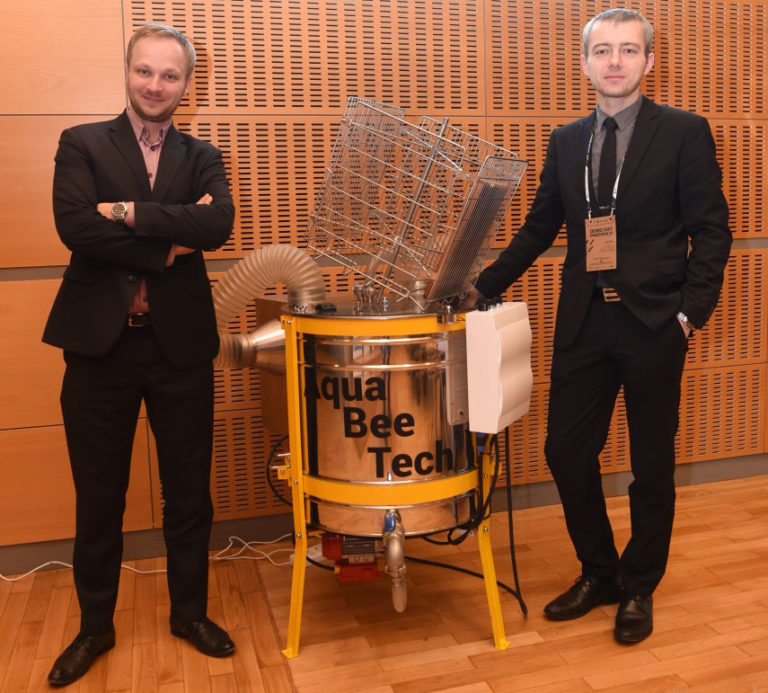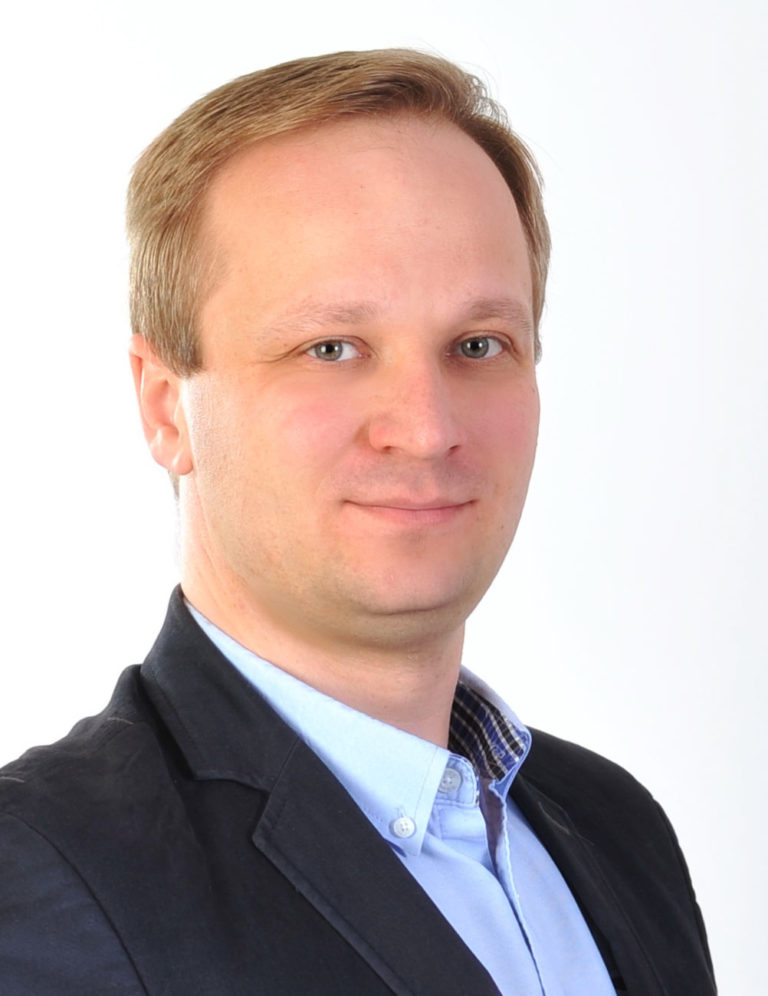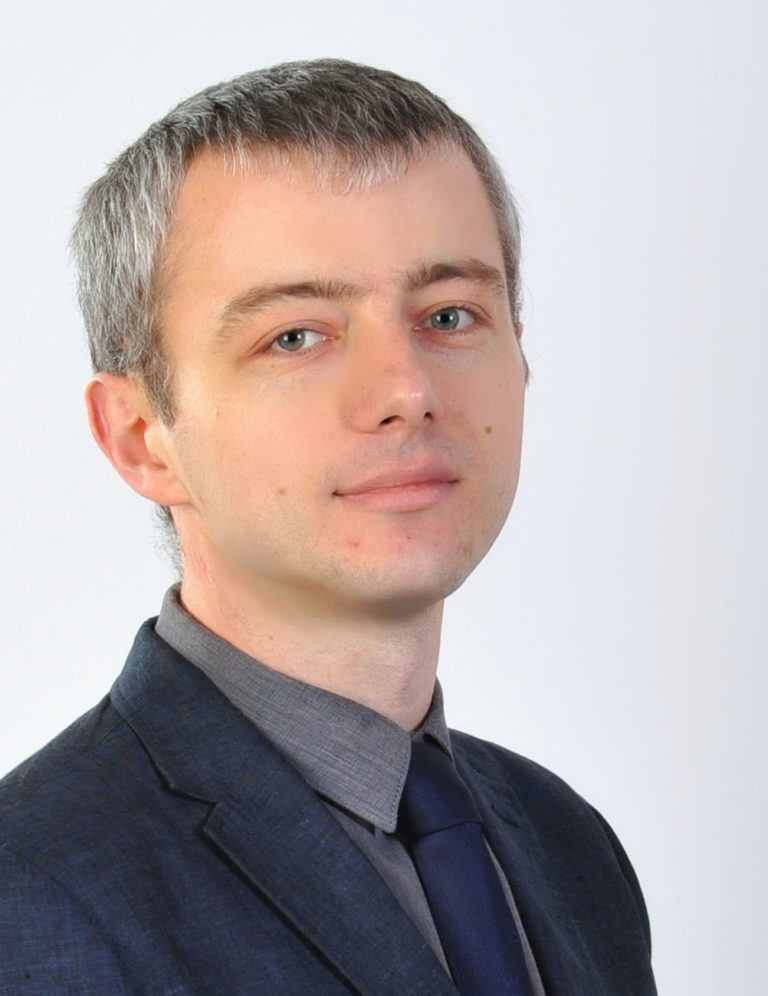
The Nationwide Beekeeping Fair “Expo2Bee” in Kielce
The last weekend of April, in addition to beautiful weather, offered us the opportunity to participate in the Nationwide Beekeeping Fair “Expo2Bee” in Kielce. For this
squickly, cheaply, and efficiently dries honey
portions from 30kg to 70kg per drying cycle
the drying cycle lasts from 8 to 12 hours
multifunctionality and simple operation
the devices are patent protected
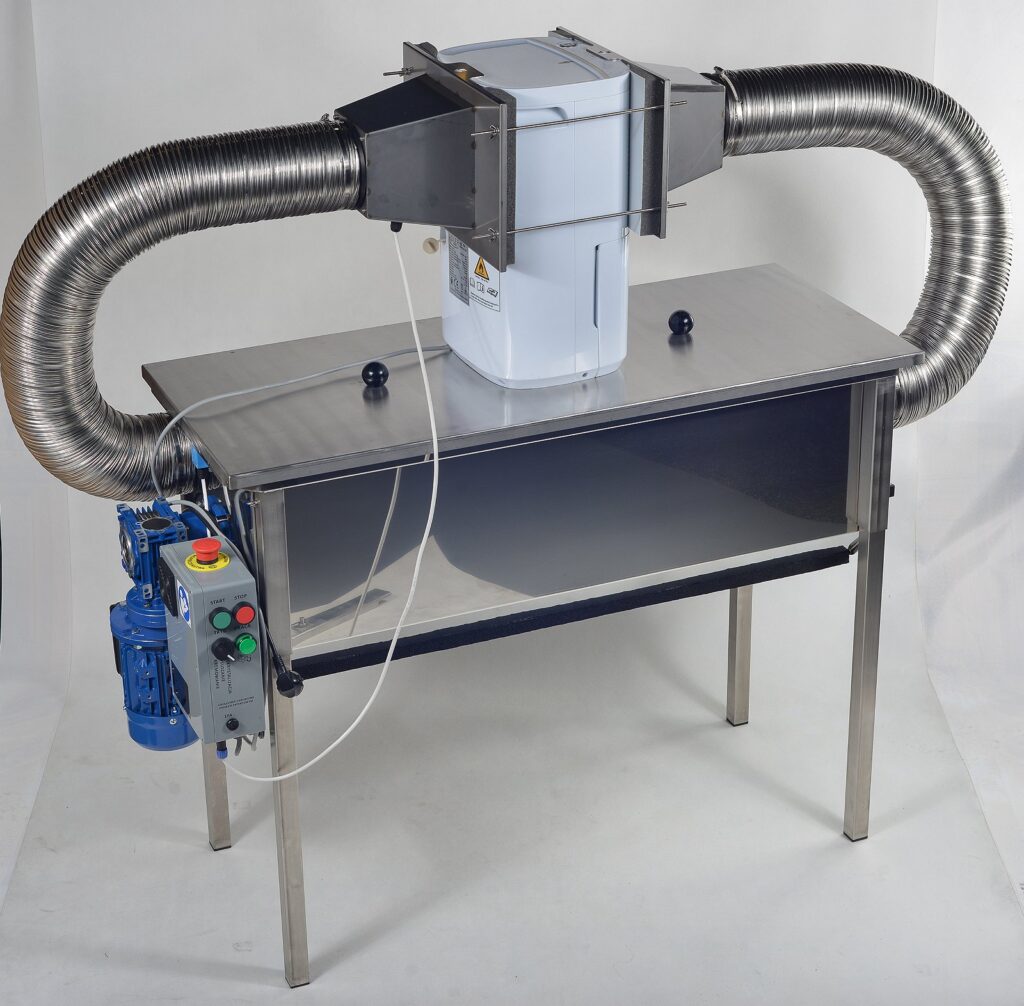
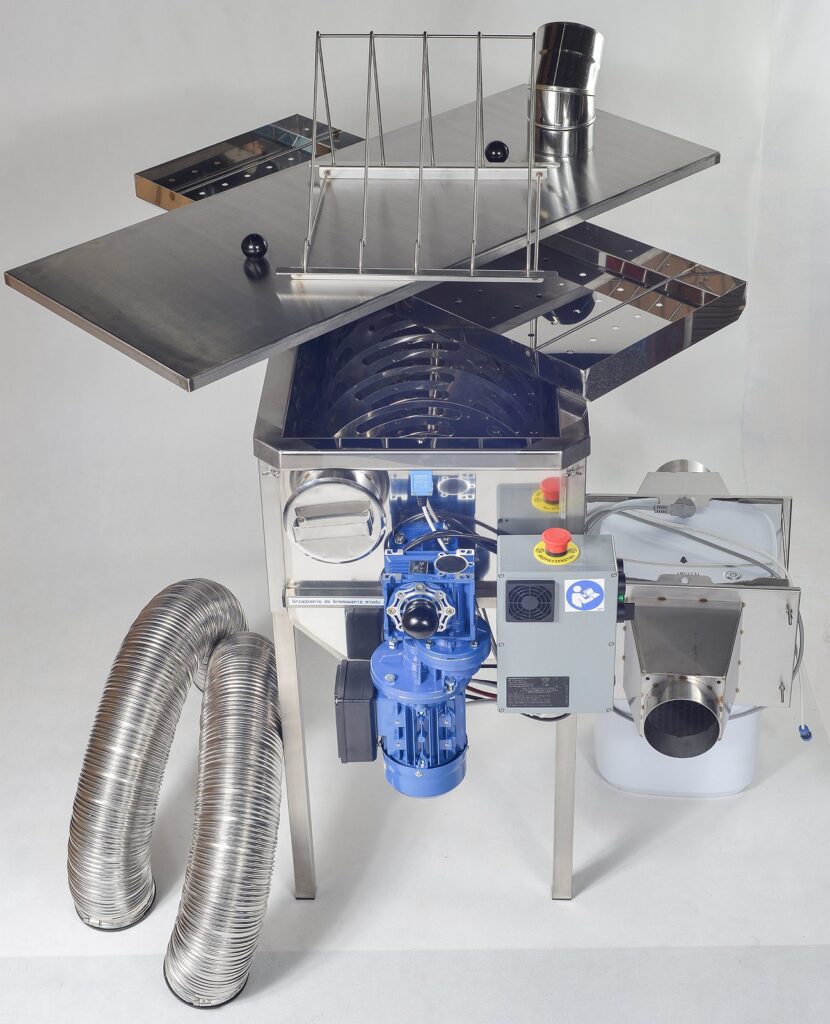

DOSKONAŁATrustindex sprawdza, czy pierwotnym źródłem recenzji jest Google. Urządzenie świetnie spełnia swoje zadania. Nareszcie koniec problemów z fermentującym miodem. Dobrze ulokowane pieniądzeTrustindex sprawdza, czy pierwotnym źródłem recenzji jest Google. Ekstra urządzenie, posiadam je od sezonu 2024, działa bez zarzutu, wszystkie funkcje proste w obsłudze. Efektywne i szybkie działanie. Polecam firmę AquaBeeTech, dobry kontakt, wszystko idealnie.Trustindex sprawdza, czy pierwotnym źródłem recenzji jest Google. Wszystko w porządku jestem zadowolony polecamTrustindex sprawdza, czy pierwotnym źródłem recenzji jest Google. Posiadam urządzenie do osuszania miodu firmy AquaBeeTech. Jest to naprawdę porządne urządzenie. Sprawna i miła obsługa przy sprzedaży. POLECAM!!!!Trustindex sprawdza, czy pierwotnym źródłem recenzji jest Google. Jako doświadczony pszczelarz, mogę z pełnym przekonaniem polecić wielofunkcyjne urządzenie firmy AquaBeeTech, które doskonale sprawdza się w różnych etapach przetwarzania miodu. Urządzenie to łączy w sobie funkcje osuszania miodu, kremowania, dekrystalizacji oraz stołu do odsklepiania, co czyni je niezwykle wszechstronnym i efektywnym narzędziem w pracy pasiecznej. **Zalety:** 1. **Wszechstronność**: Jedno urządzenie, które spełnia aż cztery kluczowe funkcje w przetwórstwie miodu, to prawdziwe wybawienie dla każdego pszczelarza. Dzięki temu oszczędzamy zarówno miejsce, jak i czas, który musielibyśmy poświęcić na zmianę sprzętu. 2. **Wysoka jakość wykonania**: Firma AquaBeeTech zadbała o każdy szczegół. Solidne materiały oraz precyzyjne wykonanie gwarantują długowieczność urządzenia i bezawaryjną pracę przez wiele sezonów. 3. **Efektywność pracy**: Procesy osuszania, kremowania i dekrystalizacji miodu przebiegają sprawnie i skutecznie. Urządzenie pozwala na uzyskanie doskonałej jakości miodu o idealnej konsystencji, co jest kluczowe dla satysfakcji klientów. 4. **Łatwość obsługi**: Intuicyjny interfejs oraz czytelna instrukcja obsługi sprawiają, że urządzenie jest niezwykle proste w użyciu, nawet dla osób, które dopiero zaczynają swoją przygodę z pszczelarstwem. 5. **Stół do odsklepiania**: Przemyślana konstrukcja stołu do odsklepiania znacząco ułatwia pracę i przyspiesza proces ekstrakcji miodu z ramek, co jest nieocenioną zaletą w szczytowym okresie zbiorów. Podsumowując, wielofunkcyjne urządzenie firmy AquaBeeTech to inwestycja, która szybko się zwraca dzięki swojej niezawodności i wszechstronności. Polecam je każdemu pszczelarzowi, który chce zoptymalizować swoją pracę i podnieść jakość oferowanego miodu.Trustindex sprawdza, czy pierwotnym źródłem recenzji jest Google. Jestem po pierwszym osuszaniu miodu i maszyna sprawuje się znakomicieTrustindex sprawdza, czy pierwotnym źródłem recenzji jest Google. Urządzenie, które powinien posiadać każdy kto prowadzi pasiekę i ceni sobie najwyższą jakość swoich produktów. W zeszłym sezonie korzystałem z tej maszyny usługowo, w tym roku zdecydowałem się zakupić. Dzięki temu urządzeniu mam gwarancję, że miód nie będzie fermentował. Dodatkowe funkcje są równie przydatne co osuszanie miodu (najbardziej zależało mi na osuszaniu). Urządzenie wykorzystuje dodatkowo jako stół do odsklepiania oraz odstojnik, dzięki temu mogłem sprzedać swoje stare urządzenia i zaoszczędzić sporo miejsca. Zdecydowanie świetne wykonanie i bardzo dobrze przemyślana konstrukcja co jest dla mnie bardzo ważne. Polecam każdemu zakup tej maszyny mimo, że cena początkowo wydaje się wysoka to finalnie mamy w tej cenie kilka urządzeń i dużo lepszą jakość niż w dużych, znanych firmach pszczelarskich. Zakup na pewno się zwróci . Dodatkowo należy wspomnieć o podejściu Pana Marcina, który robi na miejscu świetne przeszkolenie, ale chętnie doradził mi przez telefon. Dla mnie ocena za całokształt 5/5! Dodam, że moja pasieka liczy 25 uli, z zamysłem zwiększenia do 35.Trustindex sprawdza, czy pierwotnym źródłem recenzji jest Google. Urządzenie solidnie wykonane, zgodnie z opisem, bardzo przydatne w pasiece. Urządzenie godne polecenia.Trustindex sprawdza, czy pierwotnym źródłem recenzji jest Google. Urządzenie w pełni spełniło moje oczekiwania, zakończył się problem z niewpełni dojrzałym miodem nawłociowym - polecam kolegom pszczelarzom.Trustindex sprawdza, czy pierwotnym źródłem recenzji jest Google. Urządzenie w pełni spełniło nasze oczekiwania, kremowanie oraz suszenie miodu za pomocą tego urządzenia jest bardzo proste, a osiągane rezultaty w pełni satysfakcjonujące. Dodatkowo to wielofunkcyjne urządzenie można wykorzystać jako stół do odsklepiania, co idealne sprawdza się w naszej małej pasiece. Oszczędziliśmy nie tylko pieniądze, które byłyby niepotrzebne wydane na zakup innych dodatkowych urządzeń, ale także miejsce na ich przechowywanie w warsztacie. Do tego samo wykonanie urządzenia niezwykle solidne i w przystępnej, konkurencyjnej cenie w porównaniu do innych tego typu urządzeń. Warto również zaznaczyć miły i szybki kontakt z producentem. Właściciel ma niezwykle duża wiedzę na temat samego urządzenia jak i pszczelarstwa oraz chętnie się dzieli swoją wiedzą. Podsumowując naprawdę polecam zakup tego sprzętu!


We are pleased to offer you a new, larger machine for processing bee products – primarily for honey dehydration.
All the functions of our smaller machine have been retained in this new device. In addition to honey dehydration, it also allows for creaming and decrystallizing honey, as well as drying pollen and uncapping honeycombs.
Here are some key features:
maximum tank capacity: 120 liters (approx. 170 kg)
dedicated air dehumidifier: speeds up the dehydration process and reduces energy consumption
machine functions:
– honey dehydration
– honey creaming
– honey decrystallization in containers using a water bath
– flower pollen drying
– settling tank
– double uncapping table for honeycombs
– mixing honey with additives
power supply: 230V
rated power (without dedicated air dehumidifier): 1.94 kW
approximate dimensions: 1550 x 815 x 870 mm (length x width x height)
weight (without dedicated air dehumidifier): approx. 100 kg
price for the full set with all functions: PLN 21,000 (gross)
If you are interested in purchasing the large dehydrator, please feel free to contact us.
The device was developed as part of the project titled:
“Development of equipment for commercial apiaries for processing various bee products, with a working tank capacity of no less than 110 liters, optimized for the honey dehydration process in terms of stirrer rotation speed, airflow rate, air temperature and humidity, as well as honey temperature.”
The project was carried out under the initiative: Innovation Vouchers for SMEs, funded by the European Funds for Małopolska 2021–2027. more…
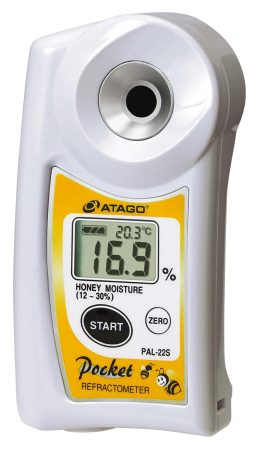
When purchasing our multifunctional device, the ATAGO PAL-22S refractometer is offered at a price of 1,550 PLN gross. The offer is also directed to individuals who have previously purchased a multifunctional device from us.

The last weekend of April, in addition to beautiful weather, offered us the opportunity to participate in the Nationwide Beekeeping Fair “Expo2Bee” in Kielce. For this
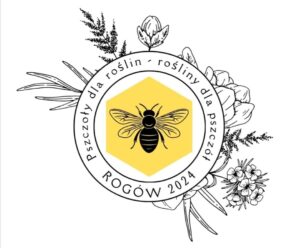
We cordially invite you to the XL National Beekeeper’s Days in Rogów on September 7-8, 2024. We will be there with our multifunctional device. Come, touch
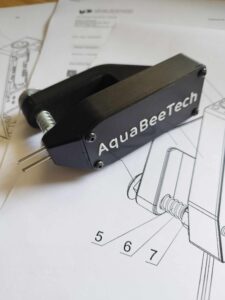
We have submitted documents to the Patent Office of the Republic of Poland for granting a protective right for the utility model of the honey level
AquaBeeTech Ltd. is implementing a project entitled. “Development of a device for commodity apiaries for processing multiple bee products, with a working capacity of the tank not less than 110 liters, with optimization of the honey dehydration process in terms of agitator speed, flow rate, air temperature and humidity, and honey temperature.”
The project is implemented under the measure: Innovation vouchers for SMEs, European Funds for Małopolska 2021-2027.

